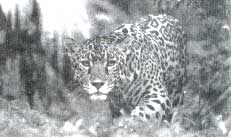VENEZUELA
 The Worldwide Fund for Nature (wwf) has identified Venezuela's Canaima National Park as part of its innovative Global 200 system. Global 200 initiative aims to encourage a more holistic view of environmental challenges. Canaima forms part of the Guyanan highlands forest and freshwater ecosystems, which spread into Brazil and Guyana as well as covering most of southern Venezuela.
The Worldwide Fund for Nature (wwf) has identified Venezuela's Canaima National Park as part of its innovative Global 200 system. Global 200 initiative aims to encourage a more holistic view of environmental challenges. Canaima forms part of the Guyanan highlands forest and freshwater ecosystems, which spread into Brazil and Guyana as well as covering most of southern Venezuela.
Below the great rainforest are a wide variety of trees, shrubs, and herbs. Scientists believe there are about 3,000 different plant species in this unesco World Heritage Site, protected since 1962. A large number of insect and animal species are also found here. These include the giant ant-eater, the jaguar, the ocelot, and the giant armadillo, along with hundreds of species of birds.
This conservation planning initiative aims to look at environmental conservation from the perspective of a region's true global ecological importance. Chris Hails , wwf 's programme director, explains the concept behind the Global 200 as "the equivalent of making a global patchwork quilt' from some 200 of the world's most biologically distinctive ecoregions.
"If we manage to preserve these areas,' Hails says, "we will be saving at least 70 per cent of the world's biological wealth for future generations.' The idea is quite simple. Instead of planning nature conservation from a site-specific perspective within ecoregions from a habitat point of view, the Global 200 scheme considers the whole ecoregion. This involves all the environmental, economic, and social processes of the entire region, how they interact and how sustainable they are in the long run.
Related Content
- 2022 global gas flaring tracker report
- Downward Spiral: the economic impact of Covid-19 on refugees and displaced people
- The world’s most neglected displacement crises
- The Impact of COVID-19 on Indigenous Peoples
- Resource-Backed Loans: Pitfalls and Potential
- 'The odour of burning wakes us': inside the Philippines' Plastic City
